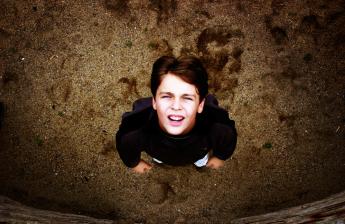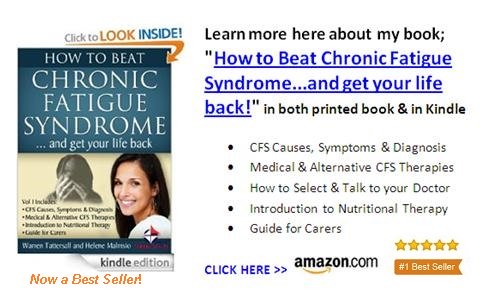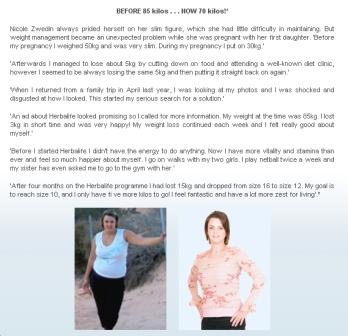| Back to Back Issues Page |
 |
|
Deal With Stress and Anxiety" Edition of Your Health Success ezine June 06, 2017 |
I hope you enjoy the e-zine as much as I do writing it. Index: Optimum Health Tip: Quote of the Day: Health Report: How to Deal With Stress and Anxiety in Children Recommendations & Sponsors Warren’s Notes Have a Laff! Inspirational Meme: Your ebook download "How to Live to 100" Thank you to my readers who refer other people to my ezine. If they want to subscribe for the next edition, they can just visit the website and subscribe here: SUBSCRIBE to eZine If you ever decide that you want to unsubscribe, you will find the link to do so at the bottom of this page. (But we will really miss you!) Optimum Health Tip:Smart Food SwapsMake your meat more heart-healthy. Cut fats from meats before cooking. It takes willpower, but you’ll feel better for it afterward. Choose a salad instead of french fries. If you choose a Caesar salad, have only a tablespoon or two of dressing. Most restaurants over-serve the dressing. Ordering pasta? Try a half order or skip the garlic bread as it adds more energy-sucking simple carbs. Want something crunchy on your salad? Try nuts instead of croutons. Did you know that quinoa has fewer carbohydrates and a lot more protein than brown rice? Choose complex carbohydrates over simple ones. This means wheat flour over white flour and brown rice over white. They’ll keep your energy going longer. Greek yogurt is a creamy treat that is low in fat and has less sugar than most North American commercial brands. Motivating Quotes:"True health infuses positive energy in the mind, body and spirit; it is a main focus in my life." - Maximillian Degenerez "Health is the thing that makes you feel that now is the best time of the year." REPORT: "How to Deal With Stress and Anxiety in Children"
Studies indicate that as many as 20% of all school aged children experience symptoms of anxiety. Stress is in another category, and it's estimated at 100% of our children who experience stress in some form or another throughout their school years. Stress can weaken a child's immune system and cause illnesses - just as it can in adults. It's important for children to get enough sleep and eat well so that the immune system stays strong - and even though stress is inevitable, they can cope with it physically. One essential part of teaching your children how to deal with stress and anxiety is setting an example for the child. If you come in from a hard day's work and immediately reach for a drink to "relax," the kids will learn that it's okay to dull the pain rather than face it head on. A cocktail in the evening is fine, but don't use it as a crutch with your own anxiety problems. When your child sees you dealing with stress by relaxation and other techniques, he'll learn a big lesson in coping. Recognizing the symptoms of stress and anxiety in children is the first step in helping them. They're not completely different from the symptoms when adults experience stress. Depression and panic attacks can ensue from too much stress in adults and children, so it's important to recognize the early signs of a much more serious problem. What Are the Symptoms of Stress and Anxiety in Children? Most adults have experienced stress in the form of a rapidly beating heart, breaking out in a cold sweat and taking shallow breaths. While we may know and understand what's happening, kids sometimes don't - and they may hide the symptoms or not know how to verbalize the suffering. Symptoms of stress may remain unnoticed because your child lacks the vocabulary or doesn't understand enough about what's happening to him to talk to you about it. It's important that you maintain a strong and open line of communication with him so that he can learn how to communicate his feelings and get help. Here are some symptoms of stress you may notice in your child: * Physical Symptoms of Stress in Children - Physical symptoms could appear in your child as headaches, stomach aches, a loss of appetite or other changes in how he eats, wetting the bed and lack of sleep. After making sure there's no illness causing the problem, you can assume that there's something stressful going on in the child's life. The stress could morph into panic attacks, which would include more exacerbated stress symptoms. * Behavioral Symptoms of Stress in Children - Your child's behavior is a good way to gauge if he's going through stress and anxiety. Acting out in an aggressive manner might be one way a child deals with stress. Stubbornness, crying, anger and attempting to control situations he's in are also behavioral problems that might be accurately identified as stress symptoms in a child. * Irrational Fears - One red flag that may identify stress in children is that they're expressing irrational fears. For example, a typical fire drill in school could cause the child to become panicked, crying and expressing fear about a real fire, even though they know it's a drill. * Extreme Sadness - If your child seems excessively sad about a situation or worries constantly about the "what ifs" in life, he may be experiencing stress and anxiety in his life. A pet or close family member's death may trigger sadness symptoms that last a long time and it may be difficult for the child to overcome. These symptoms or any changes in the physical or behavioral makeup of your child should be considered red flags that he may be suffering stress and anxiety in his life. Monitor your child closely to make sure they don't become so out of control that they harm the child's mental and physical health. Types of Anxiety in Children As children grow from babies to toddlers to young children and teens, they may experience various types of anxiety that could have an impact on the rest of their lives if they don't learn how to cope with stress they encounter. Some types of stress and anxiety disorders sometimes found in children include the following: * GAD (Generalized Anxiety Disorder) - Children diagnosed with GAD often worry all the time about anything and everything. Their brains just create anxiety out of the most ordinary things such as an impending test, grades or friends. The probable causes of GAD could include environmental factors such as family dynamics or even a chemical imbalance in the brain. Symptoms may include anger, lack of sleep, irritability and unwarranted worry. * Panic Disorder - Recurring panic attacks can affect your child both mentally and physically. Panic attacks are often uncontrollable and symptoms may include rapid heart rate, nausea and trouble breathing. Panic attacks in children are also unpredictable and may stem from the child thinking too much about such dire situations as illness, dying and other situations that he can't control. The child also might develop a fear of heights, being left alone and other thoughts that a child doesn't usually worry about. * Obsessive-Compulsive Disorder (OCD) - Children experiencing this stress disorder are often irrational about the most common daily tasks. They may be obsessed about washing their hands and imagine all types of consequences if they're not clean enough. Repetitive actions are also the norm for children with OCD. A child with OCD might begin counting obsessively or checking on something over and over again and think that something bad might happen to him if he doesn't. It's important to recognize OCD early in a child or they may get caught in a cycle that will be difficult to recover from. The child has no control over his irrational actions and may not be able to suppress them. * Separation Anxiety Disorder (SAD) - Separation anxiety can often be a normal reaction when children go through a certain stage from 6 months to 18 months old. SAD occurs when children see or sense that their parents are leaving when dropped off at day care or somewhere else. Usually, the problem subsides as they get further into the routines of school. This type of anxiety becomes a disorder when the child begins to worry that something horrible is going to happen to them if their parents leave. They might cry and cling to the parent, have trouble sleeping and refuse to eat. Children usually outgrow this disorder by the time they're two years old. If they don't outgrow it, it could become a real disorder and you may need to seek treatment. * Stress Phobias - A child who perceives danger or fear in normal situations may have a phobia. This may occur when a child has to fly in an airplane, sees or comes close to a dog or bug or has to get a vaccination at the doctor's office. The situations that children often fear might seem ridiculous to us. But, even though something may be trivial, to a child it could be monumental. If a child restricts their play and other activities and becomes withdrawn, the phobia needs to be addressed immediately. Some children's phobias may be solved by taking some quality time to spend with him to show him that what he thought was so scary, really isn't. It may be necessary to get help from a therapist to solve some children's phobias. Anxiety in children can become a serious problem if you don't recognize and cope with it early. Each child may have a different reaction to anxiety, just like in adults - and you may not always recognize it for what it is. Attempt to get your child to verbalize his or her feelings so you can better figure out how to help him. You may need to see a therapist if the anxiety continues or if it gets out of control and your child loses the ability to go to school and function in activities that children usually enjoy. Of all the types of anxiety in children, a panic attack is usually the one that reveals itself in a physical manner. You should be able to recognize when your child is having a panic attack so that you can take steps to calm him down and help him cope with the situation. Early intervention is necessary to successfully help your child with certain anxiety disorders. If you need to seek treatment from a specialist, you should know that there are highly effective ones available. (continued below...) Recommendations & Sponsors:Our Sponsors and Affiliates are what keep this newsletter and our website self help books, articles and resources free to you, so we appreciate your support when purchasing from our sponsors.In 2012 I began co-writing a book about the CFS therapies that had worked for me and my clients. I'm proud to announce that the first book in our series became a Bestseller on Amazon, ranking #1 in the chronic fatigue syndrome category! Since then, I have published Volume 2 about our CFS Diet, to fully explain how your digestive system, using cellular nutrition and superfoods, along with herbal based nutrition, can help you to recover your energy and wellbeing too!  Being asked for a Password to view a site page? Not a problem! Some of the site product pages are available only to Subscribers like you to view, that we have ongoing contact with, so they are password protected. Just enter WT (in capitals) to open the page.
REPORT: "How to Deal With Stress and Anxiety in Children" cont:How to Recognize a Panic Attack in Your ChildPanic attacks stem from stress that's escalated into visible panic symptoms. In children, as in adults, a panic attack can be sudden and unexplained fear and worry. Physically, you could experience a shortness of breath, feel a rapid heart rate and have actual pain in the chest area. The child may also be dizzy, sweating profusely and have trouble telling you what's wrong. The causes of panic attacks could be difficult to pinpoint and might be genetic in nature. They could begin and get worse because of a traumatic experience or stressful event such as a divorce. Marked changes in a child's behavior because of the panic attacks may also be symptoms that you can recognize and do something about. If a child has a panic attack and then becomes withdrawn socially, he may be afraid of having another attack in public - around his friends. Treatment for panic disorder in children may involve behavioral and cognitive therapy, certain medications or a combination of the two. It's important that you make sure your child has a healthy lifestyle if he's plagued with panic attacks. A healthy diet, plenty of sleep and a good amount of exercise can go a long way in helping the child manage and eventually get rid of the possibility of a panic attack. Let the child knows he has support and can come to you with any problem he might perceive. No worry is too small to talk about. Another thing you can do for your child to help minimize a panic disorder is to make sure there's plenty of time in the schedule to relax. Don't fill your child's calendar with too much, and make sure you talk to him about whether or not he wants to participate in certain sports or activities. How to Help Your Child Cope with the Reality of Stress We'd love to shield our children from ever having a moment's stress in their entire lives, but the fact is that they're going to be faced with some sort of stress almost every day. The key is to teach them how to cope with the reality of stress, face their fears and stand up for what's right. Children will eventually learn that stress and anxiety runs its own course in time and that finding ways to relax and get their minds off the situation will go a long way in helping them gain control of the situation. You have to encourage your child to work past the stress and anxiety they may feel and to avoid getting trapped in feelings of inferiority. Accentuate the positive. Your child may be lost in negative thoughts and criticism about his or her looks, performance in sports or academic pursuits or social aspects of their lives. When you notice your child drowning in negativity, try to boost his self-esteem by reminding him of his great attributes and how he can turn a situation into a positive experience. Set an example. If you're anxious and stressed, your child will be too. Show your child how you can face fears and overcome them or accept the outcome and go on. Taking care of yourself is also an important part of life that you need to show your children. Stand up to fear. Fear can be a horrifying experience - but once you face your fears, they gradually shrink and aren't as scary as they were before you knew the facts. Fear of giving a speech in class, performing in sports, going on a date or entering a class full of kids you don't know can be an overwhelmingly stressful experience for a child. Encourage him and teach him about how to face and overcome fearful situations. Communication with your child is imperative to conquer stress and anxiety. Help is available online in the form of "feelings" charts and other ways to help you recognize your child's body language and what he's trying to express in his actions. Try to be consistent, but flexible in your attempt to help your child overcome the stress and anxiety he or she may be experiencing. Learn more here about Stress Management for yourself and your loved ones: Stress Management and get the bonus report download there as well. We hope you found this report helpful to you and that you will put the content to good use for improving your health and wellbeing. Learn more about improving your general health by getting better Nutrition for your Cells We also have a free report that you can download when you are there about this subject! We wish you well in your search for healthy diet solutions and your movement towards better health in all areas. Contact Us if you would like a free private consultation with us about your health online. To open page linked to below just enter WT in the password box on the page.
Warren’s Notes : I have been working with nutrition products for over 25 years now and that gives the chance to look back and have a bit more perspective on things.
I have been working with nutrition products for over 25 years now and that gives the chance to look back and have a bit more perspective on things.Originally, sometime last century, I took over my family photographic business in a small town in country Australia. We were photographers: doing weddings and portraits and all of those things and we had a retail business with camera sales and film processing and picture framing etc. It was a busy life and marrying and having 4 children made it even busier. As time passed though I found myself working harder and harder to financially just stay in the same place. It seemed I needed to keep doing more, and adding new things to my business, just to keep the staff paid and the bills sorted. Then there was a change with the imminent emergence of digital photography and I knew that was going to fundamentally effect my traditional business. I began looking at other options for additional income streams and when a friend rang me to talk about nutrition and nutrition products I checked it out. I was fit and strong, training martial arts as I have said, but I was always tired. I’d been tired all my life so it seemed normal to me. Now I think that this was some form of Chronic Fatigue Syndrome (CFS) but back then I had no idea about any of that. I tried the nutrition supplements, used a full program, just to see what they were like. Normally, using serious nutrition supplements, people feel a difference in energy levels after they start after just a few days. For me it was a few weeks (again indicating CFS). Then one day I was up in the morning reaching for a shirt in my cupboard and I froze in shock. I realized that I could not remember getting out of bed! That was just stunning as all my life I had needed to force myself to wake up and to get up. I could not remember ever just waking and getting on with the day. After 25 years now of not having the energy problems I realize what a massive difference to my life getting involved with nutrition has made. Over the weeks to come I’ll talk more about this in this ezine about the story that grew out of being involved with nutrition products and working with them and also about the things I have learnt, the things that I have seen. I’ll also be able to write about other things that having energy has allowed me to do (last year I visited my 50th country and, God willing, there will be a lot more places to see in the future). For now, I will just welcome you and thank you for taking the time to read through this.
Remember, any time you want to learn more about anything in this ezine, or just need a chat about your health, drop me a line and I'll email back as soon as I can, and if you leave your phone number I'll even call you back on my dime! Have a Laff!Calories That Don't CountWe have it on experience (our own and thousands of others) that the following food and situations have no calories to speak of (although the knowledgeable might describe them as unspeakable calories.) OTHER PEOPLE'S FOOD: A chocolate mousse that you did not order has no calories. Therefore, have your companion order dessert and you taste half of it. INGREDIENTS IN COOKING: Chocolate chips are fattening, about 50 calories a tablespoon. So are chocolate chip cookies! However, chocolate chips eaten while making chocolate chip cookies have no calories whatsoever. Therefore make chocolate chip cookies often but don't eat them. FOOD ON FOOT: All food eaten while standing has no calories. Exactly why is not clear, but the current theory relates to gravity. The calories apparently bypass the stomach flowing directly down the legs and through the soles of the feet into the floor, like electricity. Walking seems to accelerate this process, so that a frozen custard or hot dog eaten at a carnival actually has a calorie deficit. CHILDREN'S FOOD: Anything produced, purchased or intended for minors is calorie-free when eaten by adults. This category covers a wide range, beginning with a spoonful of baby tapioca -- consumed for demonstration purposes -- up to and including cookies baked and sent to college. UNEVEN EDGES: Pies and cakes should be cut neatly, in even wedges or slices. If not, the responsibility falls on the person putting them away to "straighten up the edges" by slicing away the offending irregularities, which have no calories when eaten. If pie or cake is neatly cut, but the remainder is not easily divisible into equal servings, it's also permissible to even things up ... without calorie consequence.
If you have any questions or would like to have direct contact to discuss anything related to this page, nutrition products or working with the nutrition industry then please send a note through the Contact Us form here on The Health Success Site And you can also learn more about me on my profile page here: Warren Tattersall ~*~*~*~*~
Thank you for joining us this week, I hope that you have found some extra motivation and inspiration to achieve lifetime optimal health! To update yourself on our new resources and lifetime optimal health strategies just go to
Your Health Online at The Health Success Site Your Editor,
Just mouse over the link below and click "right mouse button" and select "save target as" from the window that appears, to save this 200+ page book to your computer ENJOY!
~~~~~~~~~~~~~~~~~~~~~~~~~~~~~~~ DISCLAIMER: All information is intended for your general knowledge only and is not a substitute for your counselor’s advice or treatment. Use of these products and tips are at your own risk. We make no warranty, express or implied, regarding your individual results. ~~~~~~~~~~~~~~~~~~~~~~~~~~~~~~~ DISCLOSURE: I may be an affiliate for products that I recommend. If you purchase those items through my links I will earn a commission. You will not pay more when buying a product through my link. In fact, I oftentimes am able to negotiate a lower rate (or bonuses) not available elsewhere. Plus, when you order through my link, it helps me to continue to offer you lots of free stuff. :) Thank you, in advance for your support! No Liability This product is provided “as is” and without warranties. Use of this product indicates your acceptance of the "No Liability" policy. If you do not agree with our "No Liability" policy, then you are not permitted to use or distribute this product (if applicable.) Failure to read this notice in its entirety does not void your agreement to this policy should you decide to use this product. Applicable law may not allow the limitation or exclusion of liability or incidental or consequential damages, so the above limitation or exclusion may not apply to you. The liability for damages, regardless of the form of the action, shall not exceed the actual fee paid
for the product. Note: Articles in this ezine may concern health treatments and references to trademark brands. These articles are supplied for entertainment purposes only. Any claims that are made in your use of them and any consequences of your use of them are your own responsibility. You are advised to take legal advice in relation to setting up disclaimers and other aspects of your business. ~~~~~~~~~~~~~~~~~~~~~~~~~~~~~~~ Unsubscribe only if you want to stop receiving this ezine. Instructions are below. ~~~~~~~~~~~~~~~~~~~~~~~~~~~~~~~ |
| Back to Back Issues Page |









